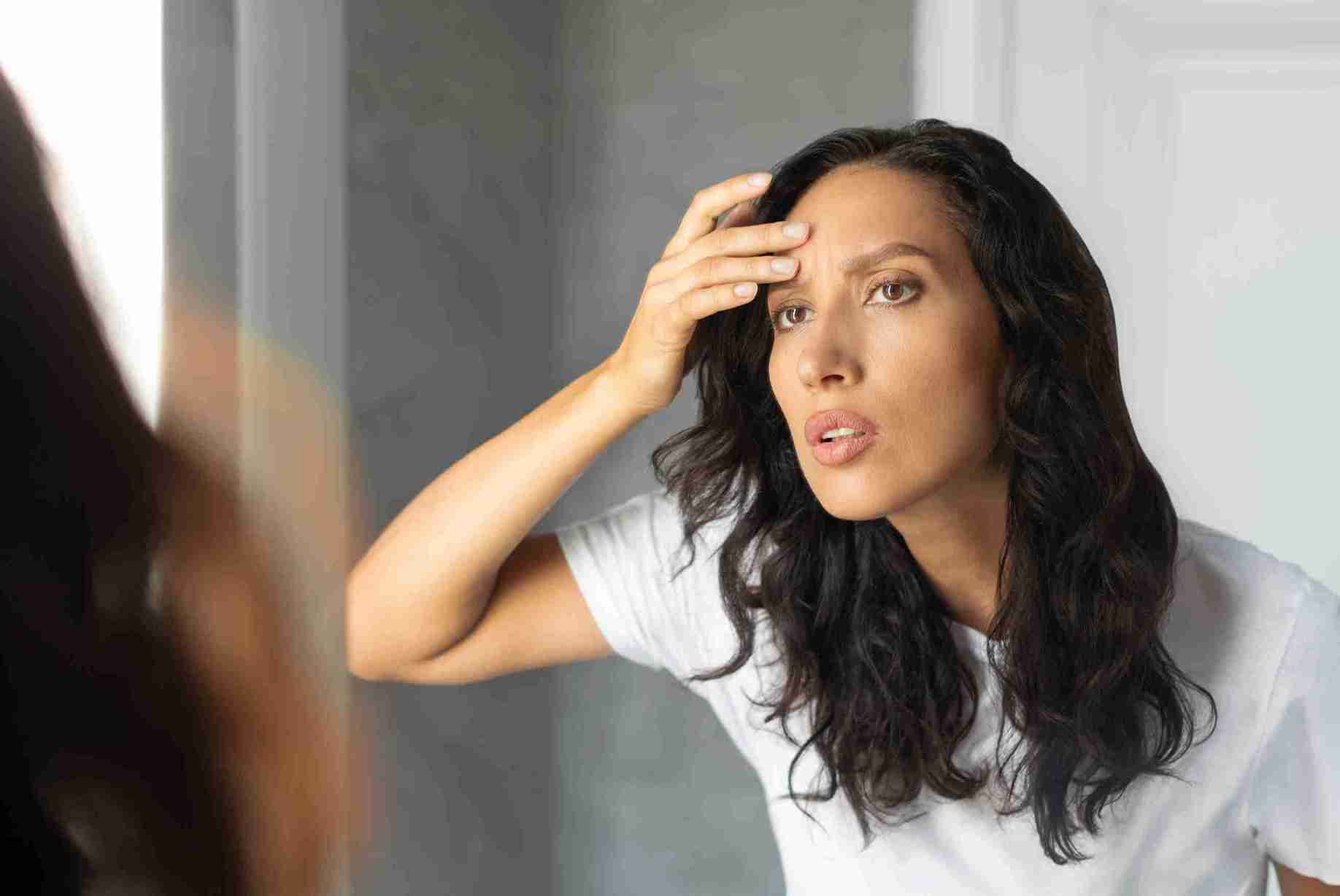
Hirsutism is a condition where women grow excessive, coarse, and dark hair in areas where men normally grow hair, like the chin, chest, or back. While a small amount of body hair is normal, hirsutism indicates a hormonal imbalance that must be treated by a doctor.
Throughout this article, we will discuss what hirsutism is, the causes and symptoms of hirsutism, and hirsutism treatment (medical and natural).

Female hirsutism is a medical condition of excess hair growth in a male pattern. The hair is normally darker, thicker, and coarser than normal body hair and occurs in locations such as:
Unlike normal vellus (fine) body hair, hirsute hair is terminal, i.e., it is controlled by androgens (male hormones such as testosterone). This should not be mixed up with normal body hair growth, which may be extremely varied in different individuals depending on ethnicity and genetics.
Besides visible hair in areas typical of males, hirsutism may present with other symptoms if the cause is hormonal. These may be:
The hirsutism severity can be different. In a few individuals, hair growth can be moderate and gradual, while in others, it can develop suddenly and is noticeably thick or dense.
Knowing the underlying cause is crucial for treating hirsutism properly. Some of the most frequent causes of hirsutism in women are:
1. Polycystic Ovary Syndrome (PCOS)
PCOS is the most prevalent cause, resulting in elevated androgen levels, irregular ovulation, and numerous ovarian cysts. It usually accompanies weight gain, acne, and infertility.
2. Adrenal Gland Disorders
Diseases such as Congenital Adrenal Hyperplasia (CAH) or adrenal tumours can result in increased production of androgens, leading to hirsutism.
3. Certain Medications
Anabolic steroids, testosterone replacement, or certain seizure medications can cause hair growth.
4. Idiopathic Hirsutism
This is a condition where no underlying hormonal imbalance or other identifiable cause is found. In this case, the hair follicles may be overly sensitive to normal levels of androgens, the male sex hormones, leading to the growth of thick, dark hair in a male-like pattern.
5. Heredity
Family history is involved; hirsutism does tend to "run in families" and is more prevalent in women of South Asian, Middle Eastern, and Mediterranean ancestry.

Accurate diagnosis leads to proper treatment. This usually includes:
Early diagnosis is essential, particularly if symptoms are worsening rapidly or are accompanied by additional hormonal symptoms.
Hirsutism treatment depends upon the cause, severity, and patient choice. It is usually a mixture of medical and cosmetic treatments.
Oral Contraceptives
Regulate menstrual cycles and decrease levels of androgens. Ideal for PCOS-related hirsutism.
Anti-Androgens
Spironolactone or finasteride inhibits testosterone at the hair follicle level; used when oral contraceptives are not enough alone.
Topical Creams
Eflornithine inhibits facial hair growth but does not eliminate current hair.
In PCOS, addressing the underlying cause of weight loss, insulin control, and hormone regulation also controls hirsutism.
Most women searching for how I cured my hirsutism seek natural and lifestyle-based approaches, particularly if symptoms are minor.
Efficacious Strategies Include:
While inspiring stories of success are wonderful, everyone is different. Before attempting herbal remedies or supplements, consult a medical professional.

In the majority of instances, hirsutism can be controlled, but not invariably ‘cured.’ The purpose of treatment is to reduce androgen levels, retard hair growth, and enhance appearance. Long-term treatment frequently includes lifestyle modification, hormonal regulation, and follow-up.
In some patients with idiopathic or mild hirsutism, hirsutism can stabilise or resolve with age or treatment. In more complicated cases, continuous care must be undertaken.
You must see a doctor if:
Early detection enables improved results and can lead to the detection of underlying conditions such as PCOS or adrenal diseases.
Women with hormonal and reproductive health issues, such as hirsutism in women, are given expert, individualised care at Cloudnine Hospitals. Our team comprises gynaecologists, endocrinologists, dermatologists, and fertility specialists who work together to identify the underlying cause and provide the best treatment tailored to your needs.
From medical treatment, cosmetic procedures, to natural remedies, Cloudnine guarantees your treatment is empathetic, comprehensive, and customised to meet your requirements.

Hirsutism in females may be emotionally and physically demanding, but with the proper strategy, it can be controlled well. Whether you're considering treating hirsutism or reading "how I cured my hirsutism" stories, don't forget that success starts with a proper diagnosis and individualised plan. From medical treatments to lifestyle changes, there is hope for smoother skin and renewed confidence.
If you or a loved one is facing hirsutism issues, speak to a Cloudnine expert today. Your journey to hormonal harmony and self-assurance begins here.

The most frequent cause is Polycystic Ovary Syndrome (PCOS), resulting in raised androgen levels.

Natural treatments such as weight loss, diet modification, and herbal supplements are useful in mild cases, but outcomes vary.

Combination pills with estrogen and anti-androgenic progestins such as drospirenone or cyproterone acetate are often prescribed.

Yes, provided with adequate hormonal control. However, comorbid conditions such as PCOS could necessitate fertility augmentation.